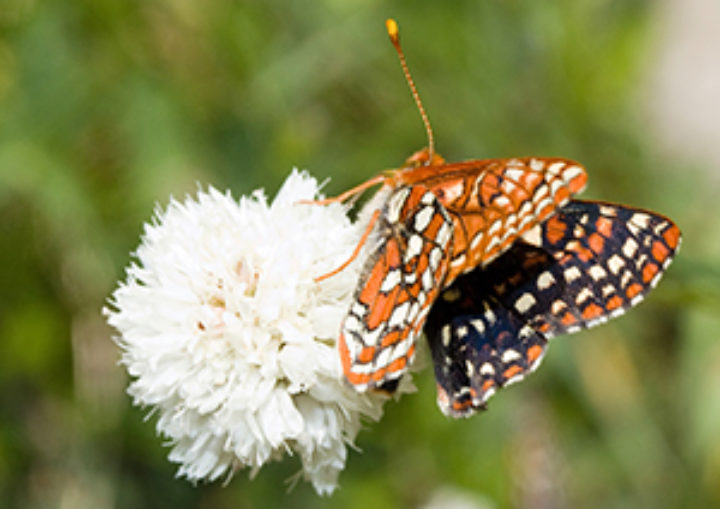6th May 2014: Plymouth Linnean Lecture
Published on 6th May 2014

Plymouth Linnean Lecture: Biodiversity and Climate Change
The first Annual Plymouth Linnean Lecture took place on Wednesday 19 March 2014 at Plymouth University, held jointly by the School of Biological Sciences and the Linnean Society of London as a free public event.The lecture drew an audience of over 100 members of the public from across the South West and the University community, and from a diverse range of backgrounds and disciplines. Thanks to Rich Boden, FLS for co-ordinating this fantastic event.

Professor Camille Parmesan (National Marine Aquarium Chair in the Public Understanding of Oceans and Human Health, Plymouth University, UK and Professor in Integrative Biology, University of Texas at Austin, USA), a co-recipient of the Nobel Peace Prize in 2007, gave a lecture entitled Biodiversity and climate change: connecting the past to the future. This successful talk encompassed misconceptions about climate change (‘global warming’ is a confusing term for the public when globally some areas are cooling down), theories from over 15 years ago (‘Arctic excursions’ where Arctic air moved southwards, freezing Great Britain in January 2010) and tracked Professor Parmesan’s research into the effect of climate change on the range shifts of species. As an historical example, the fossil evidence shows that the Arctic beetle (Diacheila arctica), found throughout Great Britain over 12,000 years ago at the end of the last glacial period, moved northwards as the climate grew warmer, and is now found in the arboreal tundra.

Over a four and a half year research period, Professor Parmesan studied the North American range shifts of the butterfly species ‘Edith’s checkerspot’ (Euphydryas editha), a good species to research due to its sensitivity to climate variability and wide range of habitats. This study led her around the world, checking the historical baselines for the species, stating:
“The UK is the best country in the world for having these historical baselines because you have such a rich history of amateur natural historians who, thankfully, kept good notes, or good specimens that they donated to museums.”
Going on to look at the range shifts of further butterfly species and other terrestrial animals, the lecture also illustrates the accelerated shifts in marine species, and the impact these shifts have on humans.
Ranked the second most highly cited author in the field of climate change from 1999–2009 by Thomson Reuters Web of Science, Professor Parmesan has worked with the Intergovernmental Panel on Climate Change for more than 15 years.
Watch this fascinating lecture here.
And to find out more about Plymouth University’s School of Biological Sciences please click here.
Images: Euphydryas editha © Walter Siegmund, Prof. Camille Parmesan © Plymouth University
